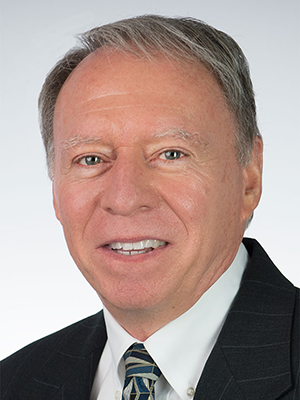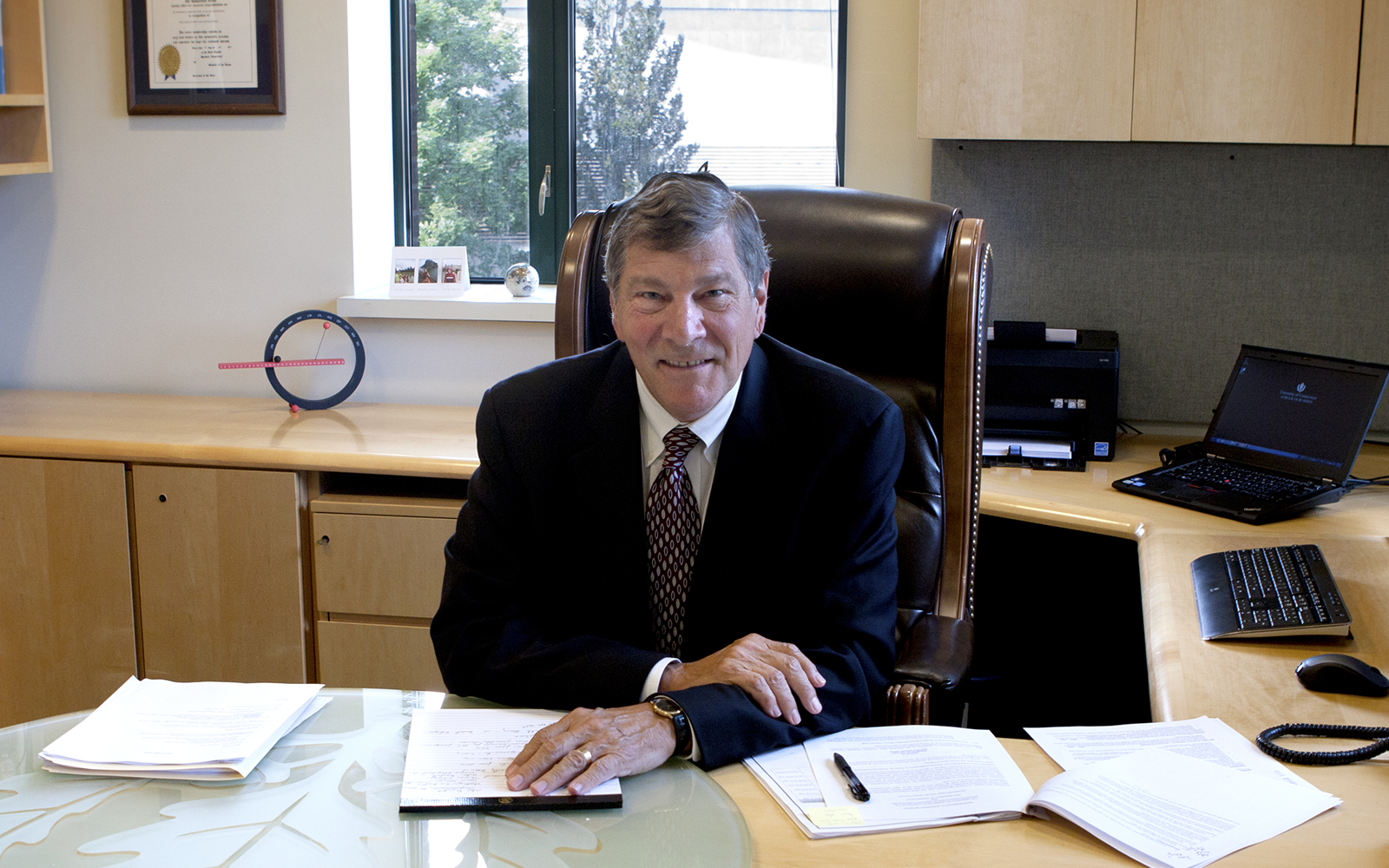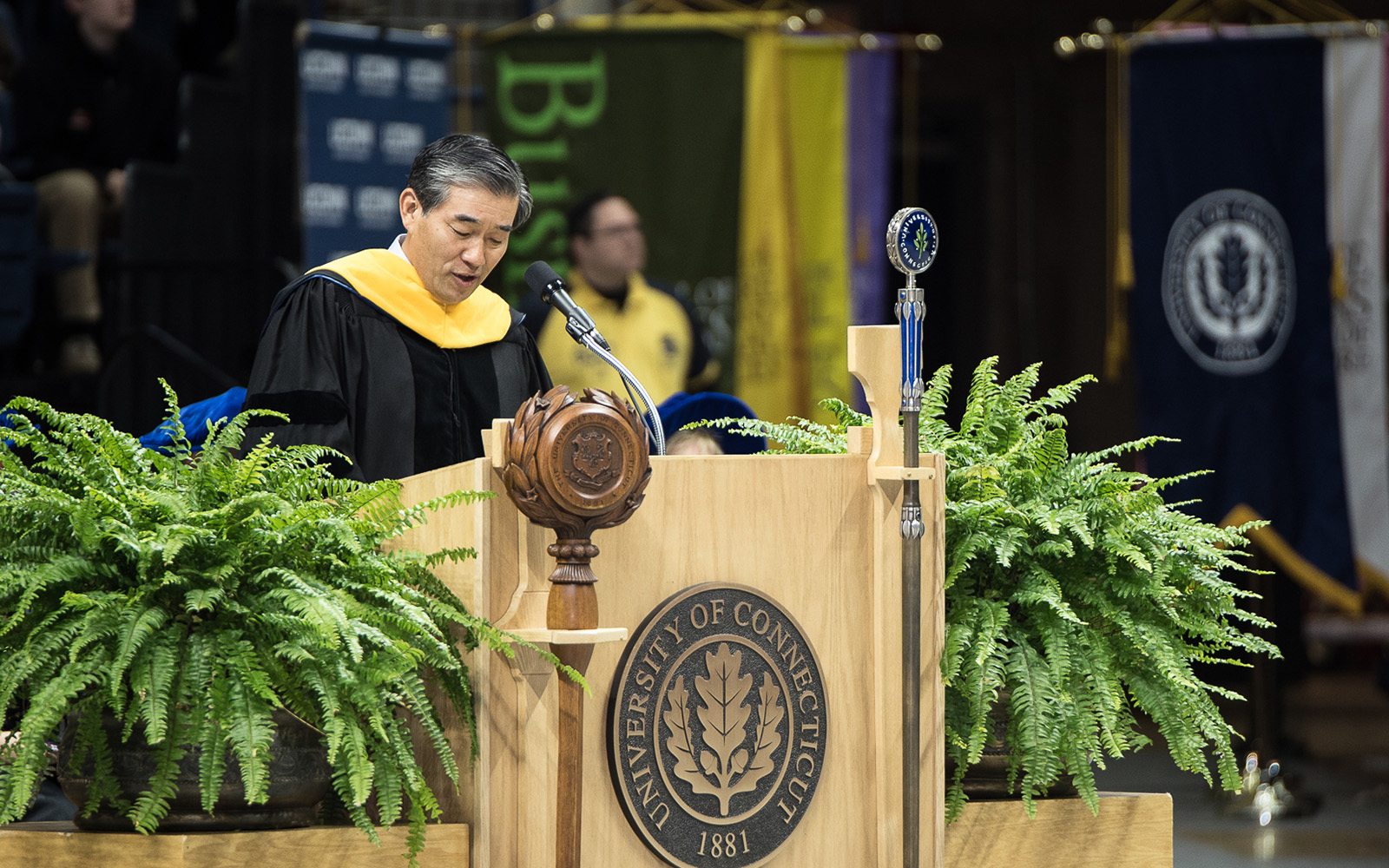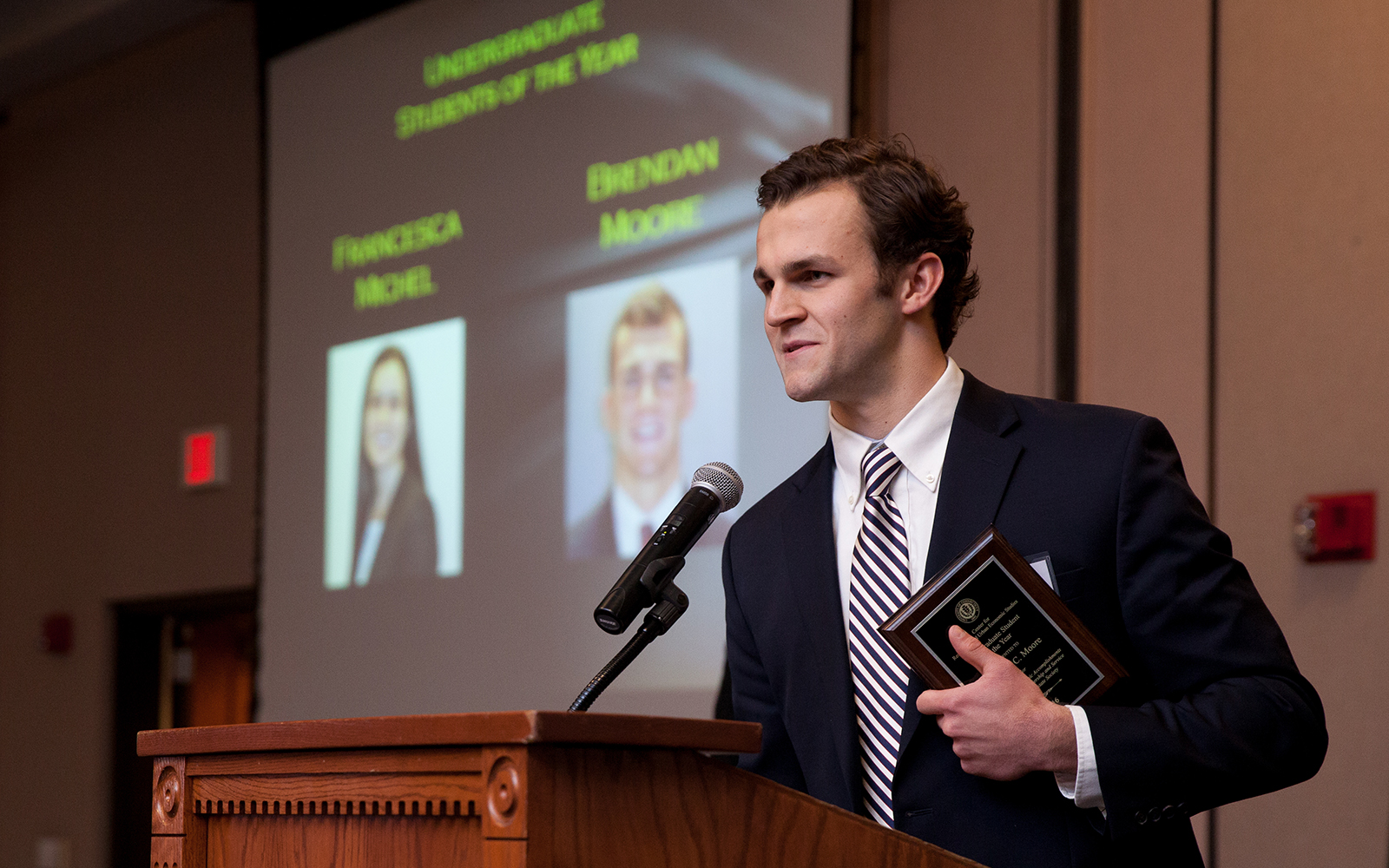Greenwich Time– Litchfield County has long been known for its green hills, horse farms and quaint small towns, but it is losing population at a rate that threatens to make it a region of virtual ghost towns by midcentury.
Real Estate
Dean’s Annual Report 2016
Transforming Futures
In describing the UConn School of Business at this moment, 76 years into its accomplished history, the word “engaged” captures the essence. Our students, faculty and staff are engaged with each other, with our alumni, with the corporate community and with the University.
The School’s growth has been extraordinary, both in terms of enrollment and creating and maintaining vibrant, effective and relevant academic programs. We are transforming the future—of our students, our state, our industries and our world. There is much to celebrate.
We invite you to read the 2016 Dean’s Annual Report.
2017 ‘Legacy’ Students

Two Business Undergrads Honored as among University’s Most Promising
Kavisha Thakkar is planning a career as a physician, but is also pursuing a dual degree in accounting, so that she can better understand the healthcare-payment system and assist her future patients. Continue Reading
What’s Normal?
U.S. Economic Expert Shares Vast Knowledge With Our Graduate Students
Economist Cletus C. Coughlin, senior vice president and policy adviser to the president of the Federal Reserve Bank of St. Louis, was a guest lecturer in the School of Business’ graduate program on Sept. 27.
Coughlin presented his knowledge on “The U.S. Economy: What’s Normal?” in Professor Jeffrey Cohen’s “FNCE 5533 – Real Estate Capital Markets” class at the Graduate Business Learning Center in Hartford.

In his 30 years at the Federal Reserve, Coughlin’s responsibilities have focused on advising senior officials on monetary policy, as well as on academic research on the topics of international trade, urban, regional, and real estate economics. He has been with the Federal Reserve since 1987.
Coughlin and Cohen have been collaborating on research for the past 15 years, having published on a wide range of topics, including property taxation, airport infrastructure issues, housing price impacts of airport noise, and the boom and bust of U.S. housing prices.
Most recently, they co-authored an article with a third researcher on foreclosures, which was published in September 2016 in the Federal Reserve Bank of St. Louis Review. Read their article here.
A Fast Track to Economic Growth?

Real Estate Professor Jeffrey Cohen Eager to Study Impact of New Transit System on Central Connecticut
Will the state’s new bus rapid-transit system – CTfastrak – which has already carried 4 million riders since its inaugural trip in March 2015, also spur growth in housing, restaurants, and other businesses along its route in central Connecticut? Continue Reading
In Memoriam: Frank Wuest ’82
Frank Wuest ’82, president of the Boston-based real estate investment firm Marcus Partners and a dedicated alumnus who enjoyed mentoring UConn business students, died unexpectedly Aug. 13.
“Frank Wuest was an exemplary alumnus of the UConn School of Business,” said Dean John A. Elliott. “He engaged with faculty, staff, students and alumni. He spoke at events in Boston, he hosted visits by our students to his real estate offices, he took their phone calls, and advised them well.”Continue Reading
Top Business Executives/Alumni Join Newly Created Dean’s Advisory Cabinet

Dean John A. Elliott has assembled a new Advisory Cabinet for the School of Business, which includes 12 outstanding business leaders who are also passionate about their commitment to the University. Continue Reading
An Expensive Real-Estate Seminar Isn’t How to Get Rich
Graduates: Listen to Your Mother!

New York Life President John Y. Kim ’87 MBA Delivers Light-hearted, Advice-Filled Commencement Speech
Be kind to your siblings and your co-workers, never show up at a celebration empty handed, and listen to your mothers.
That was some of the advice that alumnus John Y. Kim ’87 MBA, the president and CIO of New York Life, offered to School of Business graduates during commencement on May 8. Continue Reading
Graduate Profile: Brendan Moore ’16

Brendan Moore: Real Estate
Graduate Plans to Bring Irish Work Ethic to Job; Mentor UConn Students the Way Others Guided Him
Having a strong network of colleagues and friends is crucial in every business, but especially in commercial real estate.
“The professors really preached to us that it is important to maintain your friends and network with your classmates,” said Brendan Moore ’16. “It is such a big industry, but everyone is connected in some aspect.”
Moore, a native of Trumbull, was namedContinue Reading